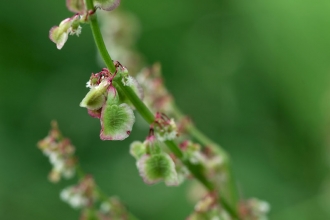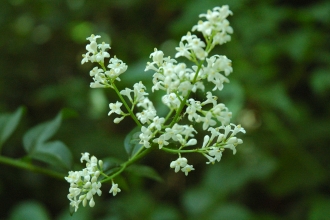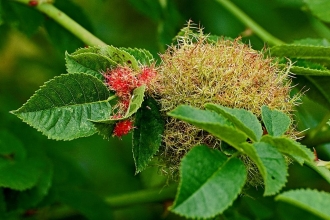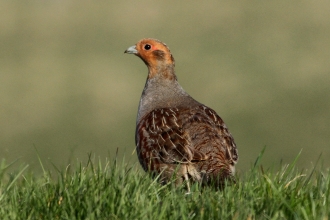Species
Find out more about the UK’s wildlife from birds of prey to wildflowers and from marine wildlife to trees and fungi.

Curled dock
Curled dock is often considered a 'weed'. It can be found near water or on disturbed ground almost anywhere. It is similar to…

Wild privet
Wild privet is a shrub of hedgerows, woodlands and scrub, but is also a popular garden-hedge plant. It has white flowers in summer and…

Wryneck
This well-camouflaged woodpecker used to be a common breeding bird in Britain, but is now only likely to be seen passing through on…

Atlantic bluefin tuna
The bluefin tuna is a highly migratory fish which roams the oceans. This species will cross oceans, travelling between the Mediterranean…

Robin's pincushion
Living up to its name, the Robin's pincushion is a red, round, hairy growth that can be seen on wild roses. It is caused by the…

Grey partridge
The grey partridge is an attractive bird that prefers the ground to pear trees! Found on farmland and grassland, it is under threat from…

Traveller's-joy
The fluffy, white seed heads of traveller's-joy give it the evocative, alternative names of 'old man's beard' and…
Cinnamon bug
This distinctive black and red bug is an increasingly common sight across much of Britain.

Dingy mocha
This pretty, speckled moth is now a rare sight, found only in a few parts of southern England.
Grass-of-parnassus
The stately grass-of-parnassus displays pretty, white flowers with green stripes. Once widespread, it is now declining as its wetland…

Giant house spider
The giant house spider is one of our fastest invertebrates, running up to half a metre per second. This large, brown spider spins sheet-…

Silver Y
The silver Y migrates to the UK in massive numbers each year - sometimes, an estimated 220 million can reach our shores in spring! Seen…
Make a Donation to Cornwall Wildlife Trust
Making a donation online is simple and secure. You can choose to support a particular project – or make a general donation and let Cornwall Wildlife Trust decide where the need is most urgent.
